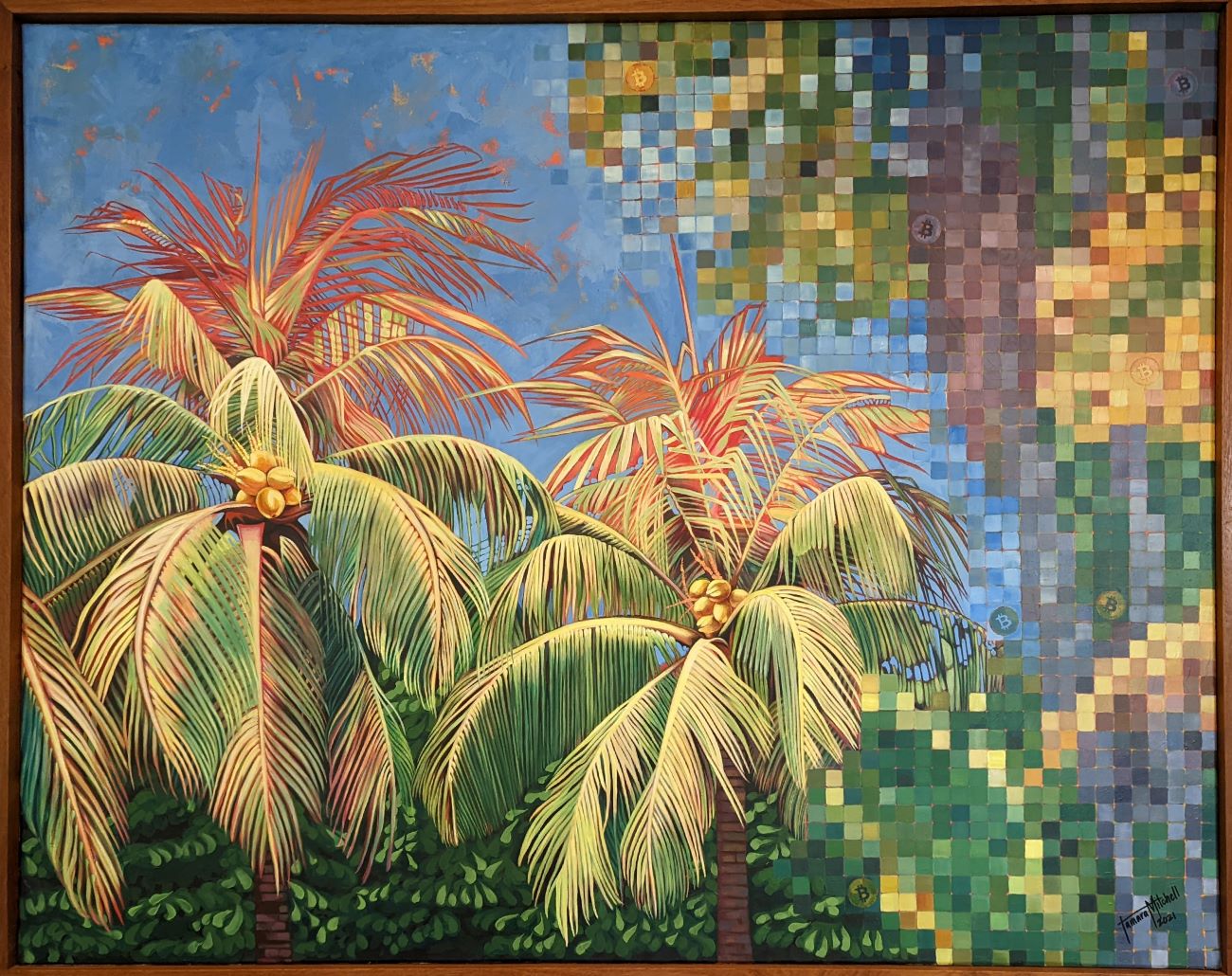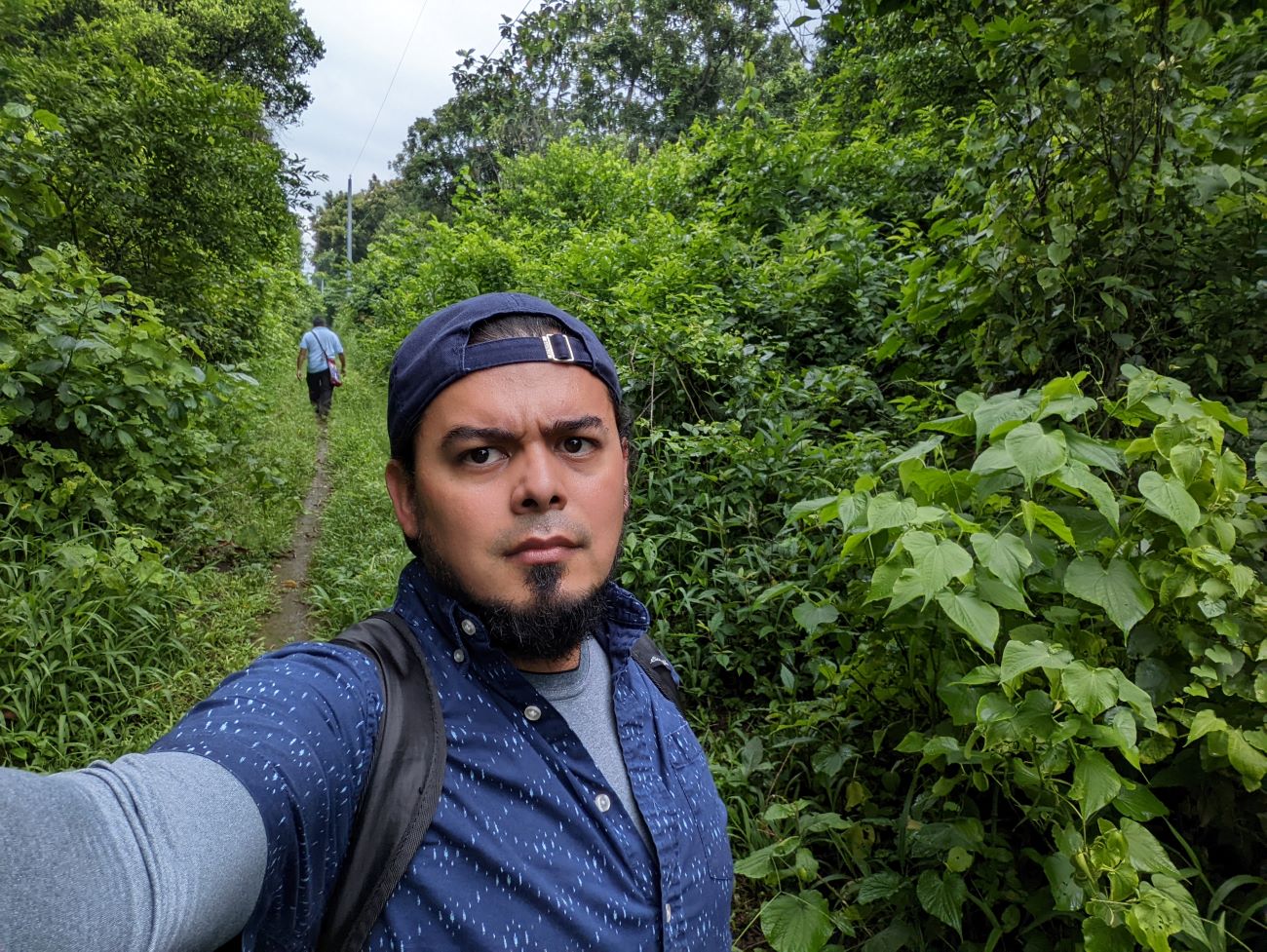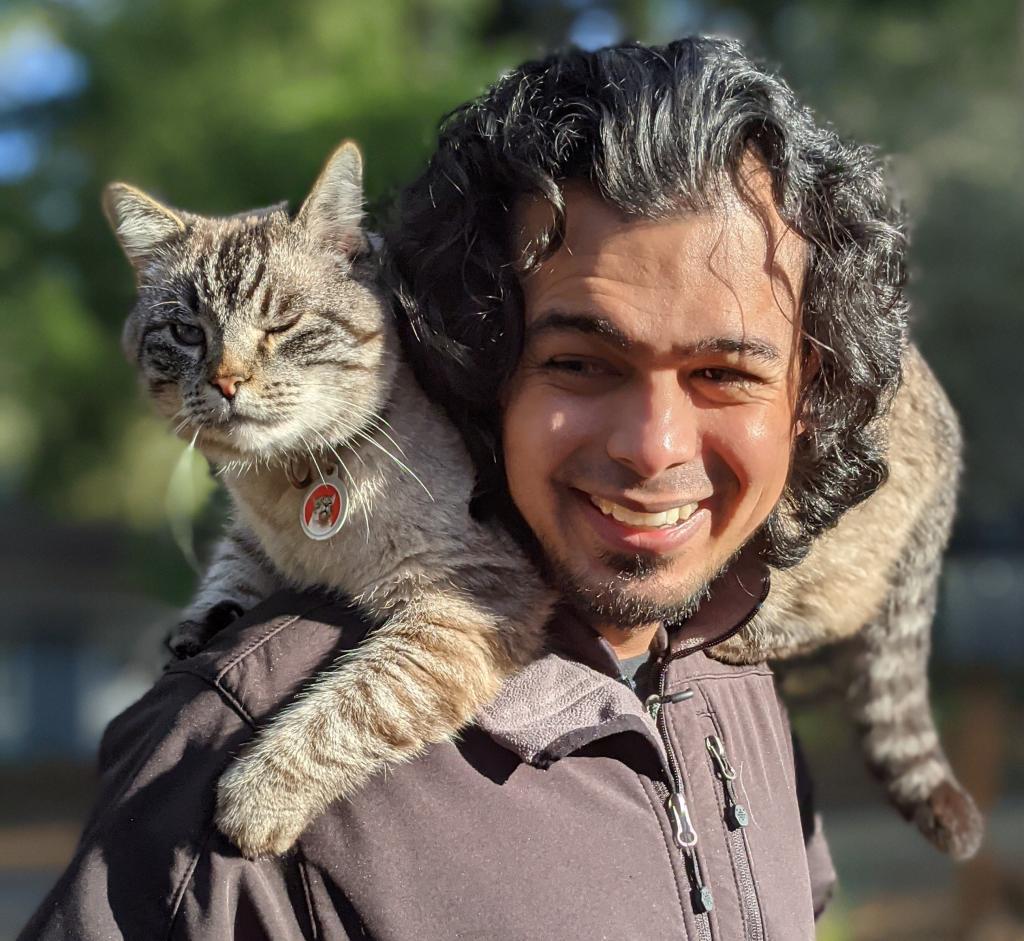Ph.D. Candidate
Ph.D. Candidate
Current Research
I coined the term "Cryptonocene" in my dissertation research on virtual crypto mining and natural resource extraction. I introduced this concept in Dr. Nancy Peluso's graduate political ecology seminar. My research focuses on the impact of virtual crypto mining on electricity production and the creation of "electric plantations," which extract natural resources to generate the large amounts of electricity needed for virtual crypto mining. I use a comparative case study analysis to examine the power dynamics and consequences of these electric plantations on community and ecological health.

For my research, I am studying the impacts of electric plantations on community and ecological health in El Salvador, using Bitcoin City and Zacatillo Island as case studies. As the first country to adopt Bitcoin as its legal tender, El Salvador provides a unique opportunity to critically examine the potential consequences and power dynamics. The prioritization of cryptocurrency and the creation of electric plantations may have unintended impacts on community and ecological health.
Critical Environmental Justice Pursuits
As a healer, I focus on ecological and community health. I earned a Certified Nurse Assistant certificate in high school and completed a funded undergraduate thesis project on the educational health of historically oppressed communities. For my master's thesis, I implemented a community-based environmental health restorative initiative. I have also conducted investigations and research with Washington State’s Department of Labor and Industries and participated in various youth and community health projects.

Drawing on ancestral wisdom, I am pursuing a Ph.D. and advocating for critical restorative justice, including the federal government's recognition of indigenous communities in El Salvador. My research converses with Indigenous epistemologies to challenge oppression rooted in racial capitalist and colonialist extractions. I currently focus on environmental justice via federal recognition of Indigenous communities of El Salvador. This past summer (2022), during a month-long preliminary research visit to El Salvador, I hand-delivered personal letters to the government demanding official recognition of Indigenous communities. Such recognition would likely generate ripples, hopefully triggering Land Back movements similar to Mexico’s Yaqui Justice Plan, which drives land restitution, water rights, and community development.
Previous Work & Brief Personal Statement
As a first-generation immigrant and college student, I am grateful for the opportunity to be the first in my family to graduate high school and pursue higher education. I acknowledge the support and guidance of my mentors and communities in my success. I have made great strides, from helping my parents with day laborer duties to being appointed a research project manager by the Washington State Legislature and pursuing a Ph.D. at UC Berkeley.
After completing a master's degree, I moved to Washington State with an eye toward fighting oppression, accepting work as an agriculture investigator with the state Department of Labor and Industries (LNI). During my first six months in this role, I was the lead investigator of a tragic work-related death caused by labor exploitation. I reported to multiple agency directors and successfully secured a $73,000 penalty – the largest ever assessed by LNI for agricultural rest and meal break violations. Based on my performance, I was later appointed as the Agriculture Specialist and hired other agents, providing critical guidance for the unit I oversaw. As a research project manager appointed by LNI, I oversaw a $2 million study requested by the state legislature to examine janitors' work conditions and improve occupational health and safety outcomes. I worked with multidisciplinary researchers, including epidemiologists, ergonomists, economists, and others, to develop and implement multilingual (English, Spanish, Amharic, Chinese, Russian, Somali, and Vietnamese) community-based outreach strategies. I contributed to reports for the legislature, developed newsletters and other educational materials to share findings with the involved communities, and helped present the research to the American Public Health Association.
Early in life, my elders and mentors taught me the importance of getting into “good” trouble. I have since then focused a lens of social justice on my work to advocate for equity and lift up voices within overlooked and underrepresented communities, following a professional and personal trajectory toward graduate research on Indigenous communities in El Salvador.
I have not been afraid to get into good trouble. I led the founding of the BIPOC Business Resource Group at LNI during the new civil rights era triggered by the murder of George Floyd and the COVID-19 pandemic. This group challenges oppressive internal and statewide policies with new decolonized norms/realities.
Selected Presentations, Papers, & Conference Activity
Sibrian, D., et al. (2020, June). Washington State Janitorial Workload Study: Progress report to the Legislature. I was one of the authors of this interdisciplinary report. I was the Bilingual Research Project Manager of this team.
Sibrian, D. (2019, November). Janitors' Resilience: Navigating Workplace Safety Concerns and Recommendations to Improve Their Conditions. Presentation at American Public Health Association.
Anderson, N., Smith, C., Bao, S., Sibrian, D., Chavez Santos, E. (2019, November). Improving the Occupational Health and Safety of Janitors in Washington State. Presentation at American Public Health Association.
Chavez Santos, E., Smith, C., Anderson, N., Sibrian, D., (2019, November). Inequities in the workplace: A qualitative analysis highlighting Latinx janitorial worker’s occupational safety and health concerns in Washington State. Poster Presentation at American Public Health Association.
Sibrian, D. (2016, March). Growing and Maintaining Communities through Urban Farming Initiatives. Poster session presented at the annual meeting of Midwest Sociological Society.
Sibrian, D. (2016, March). Maintaining/Building Healthy Communities by Growing Food. Participated in a roundtable discussion at the annual meeting of Midwest Sociological Society.
Brown, A. M., Sibrian, D., Hawkins, D. N. and Anderson, A. (2016, March). Attributions of Racial Differences and Support for Social Policies in the United States. Paper presented at the annual meeting of Midwest Sociological Society.
Ramos, A.K., Sibrian, D., Varas, A., Soto, A., and Labrador, J. (2016, February). Vibrant Community, Healthy Garden: A Collective Impact Strategy to Improve Health and Build Community. Presentation at Heartland 2050 Winter Summit.
Ramos, A.K., Sibrian, D., Trinidad, N., and Correa, A. (2015). South Omaha Community Garden Survey, Community Report. A Report to the Dororthy Patach Community Garden Planning Committee.
Cryptonocene, political ecology, energy transitions, land, displacement, health (community & ecology), critical environmental justice, critical Indigenous studies, indigenous rights/sovereignty, food sovereignty, interdisciplinary mixed methods
ESPM Summer 2023 Research Funding Grant
Starter Grant, Environmental Science, Policy, & Management - One of the four students in my cohort who was awarded priority funding.
Tinker Field Research Grant, The Center for Latin American Studies
American Cultures Engaged Scholarship (ACES) Chancellor's Public Fellow
Spring 2023: Graduate Student Instructor for ESPM 155AC: Sociology and Political Ecology of Agro-Food Systems with Dr. Kathryn Teigen De Master
Fall 2022: Graduate Student Instructor for ESPM 118: Agricultural Ecology with Dr. Timothy M Bowles
Spring 2022: Graduate Student Instructor for ESPM 168: Political Ecology with Dr. Nancy Lee Peluso
Fall 2021: Graduate Student Instructor for ESPM 50AC: Intro to Culture & Natural Resource Management with Dr. Kurt Spreyer
Contact details
Deibi Sibrian
UC Berkeley
130 Mulford Hall #3114
Berkeley, CA 94720


